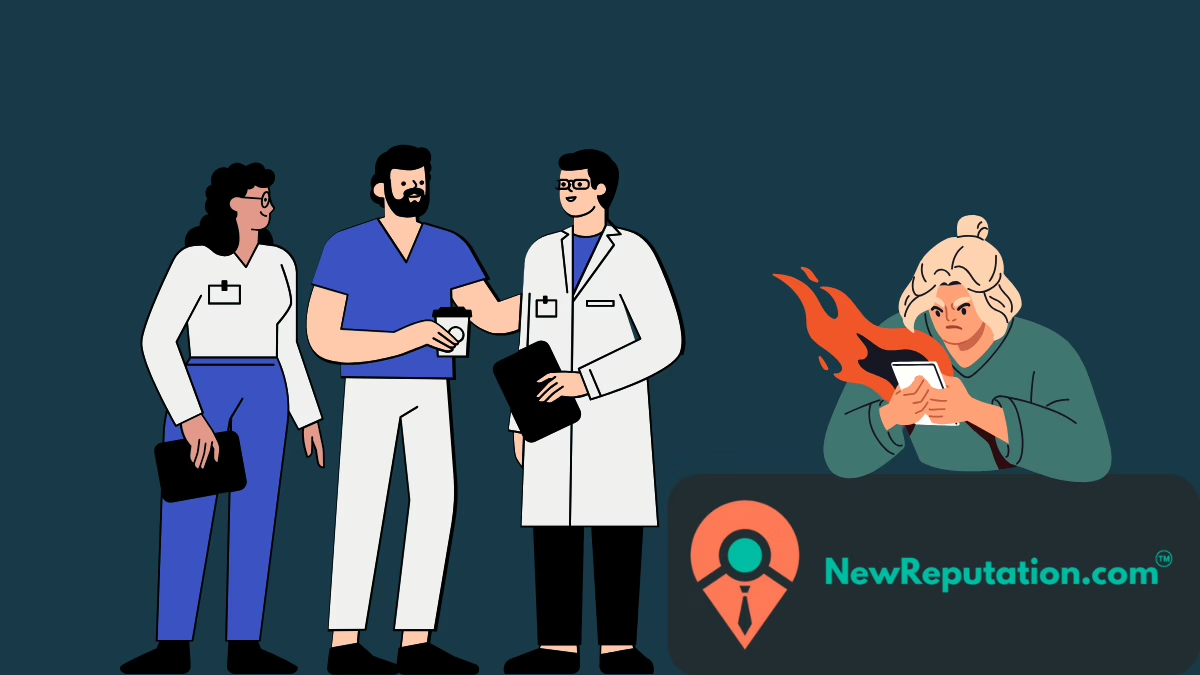In healthcare, words carry weight. A single false statement can ripple through a workplace and cause serious harm. It might start as gossip, a poor note in a file, or a frustrated social post. Before long, it can turn into a full defamation claim that damages careers, patient trust, and an organization’s reputation.
This guide examines what defamation is in healthcare, how it occurs, the legal consequences, and what professionals can do to prevent it.
Definition and Elements of Defamation in Healthcare
Defamation means making untruthful allegations that hurt another person’s reputation. In healthcare, these statements often involve patient care, patient safety, or worker misconduct.
If the claim is written, it is considered libel. If it is spoken, it is slander.
For a statement to count as defamation, four main elements must exist:
- A false statement must be presented as fact.
- The statement was shared with other people.
- It caused harm to someone’s career or reputation.
- The person spreading it acted carelessly or intentionally.
Even something as small as word of mouth can create real problems if it spreads false information about someone’s patient care or work habits.
Healthcare environments rely on communication and record-keeping. Reports and reviews are important for protecting patient safety, but when someone files a written form with inaccurate or exaggerated information, it can quickly cross into defamation.
Legal Risks and Consequences for Healthcare Professionals
A defamation claim can create serious legal and professional consequences. If a healthcare worker is accused of clinical incompetence or worker misconduct, the impact can go far beyond hurt feelings. It can lead to disciplinary action, termination, or an investigation by a licensing board or healthcare regulator.
Courts treat false statements about medical professionals seriously. Some cases have resulted in large jury verdicts and punitive damages due to serious reputational harm.
Sharing confidential truths can also cause trouble. Even if information is correct, it may still violate medical malpractice claims rules or privacy laws.
Social media has made defamation easier to commit. A single post accusing a doctor or nurse of poor care or clinical incompetence can reach thousands of people and cause permanent damage.
Healthcare professionals need clear risk management strategies to protect themselves and their organizations. Careful documentation, factual communication, and private resolution are key steps to avoiding costly mistakes.
Case Studies and Real-World Examples
Real cases show how defamation can happen even in well-meaning workplaces.
In a case study of counselor malpractice, a licensed professional clinical counselor was falsely accused of misconduct in a report shared with multiple employers. Despite the report’s business motivations, the high court discovered that it contained false allegations and exaggerated claims. The counselor won part of the legal remedy and the employer was warned to improve its reporting process.
In another civil defamation case, a nurse was accused of inadequate patient care and reported to a state licensing board. The ALJ finding later confirmed the report was wrong, and the nurse received compensation after a favorable jury verdict.
A separate lawsuit involved a hospital that circulated false claims about a doctor’s performance as part of union-organizing retaliation. The court ruled that the hospital’s behavior met the standard for defamation and caused measurable professional harm.
All these cases highlight a common truth: hasty or careless communication results in real people suffering. Professionals must slow down, verify facts, and ensure every report or statement is backed by evidence.
Resolution and Handling of Defamation Allegations
When alleged misconduct arises, how an organization responds matters. A thorough and evenhanded investigation is the first step. The goal is to find identifiable facts, not opinions or rumors.
If an incident involves reporting to a licensing board, it should comply with all applicable legal reporting requirements. Only those with a legitimate business need to know should have access to the information.
If false statements are confirmed, the victim may pursue a legal remedy, such as a correction, an apology, or compensation. Some situations call for disciplinary action or termination, but others may be solved internally through mediation.
Employers should always review whether prior similar violations or mistakes occurred. This helps identify patterns and reduce the chance of future claims.
Consistent training for managers and HR teams is essential. People need to know how to report alleged misconduct fairly and when to involve legal counsel.
Risk Management and Prevention Strategies
The best protection against defamation is prevention. Healthcare organizations can lower their exposure by creating a clear protocol for the handling of reports of employee misconduct.
Other preventive measures include:
- Keeping employee evaluations factual and private.
- Avoiding emotional or speculative comments in reports.
- Encouraging staff to resolve conflicts professionally.
- Providing clear procedures for addressing employee claims of defamation.
Every statement in a report, email, or meeting should be something the speaker can verify. Professionals should also treat social media as an extension of the workplace and avoid discussing patients, coworkers, or internal issues publicly.
Final Thoughts
Defamation in healthcare isn’t just about lawsuits. It’s about ethics, fairness, and protecting trust within the workplace. Every misconduct report, every comment, and every document should reflect accuracy and respect.
When people speak carelessly, it can destroy years of good work and undermine patient safety. But when communication is honest and documented responsibly, it builds stronger teams and safer care environments.
Understanding defamation, recognizing the risks, and following preventive steps protects everyone involved, patients, professionals, and institutions alike.

Delphia is the staff writer for the NewReputation Help Center, Sales & Service blog. She has a background in content creation and writes clear, informative articles on reputation management, online visibility, trust building, and how they relate to each other. As an efficient writer who produces high-quality content, Delphia assists with a variety of editorial projects. When she is not working, you can find her traveling, taking pictures, or reading a good book.

